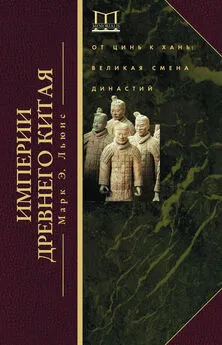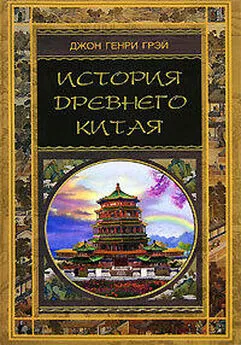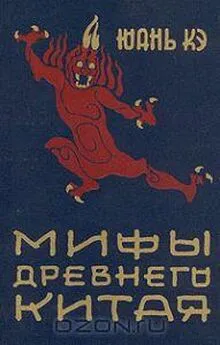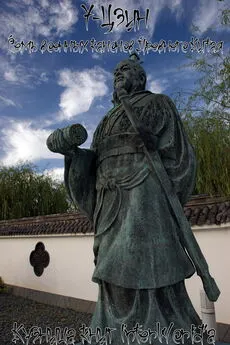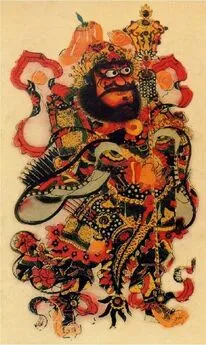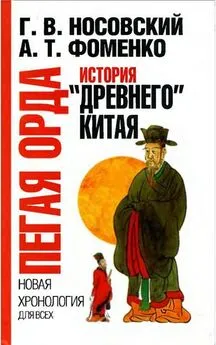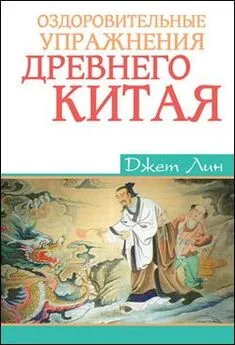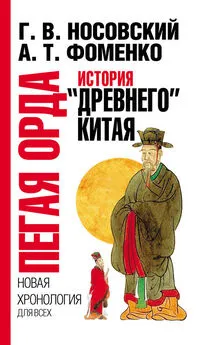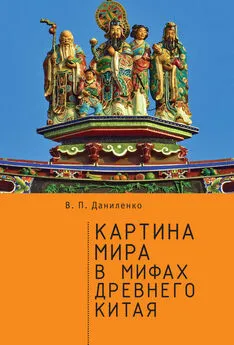Марк Льюис - Империи Древнего Китая. От Цинь к Хань. Великая смена династий
- Название:Империи Древнего Китая. От Цинь к Хань. Великая смена династий
- Автор:
- Жанр:
- Издательство:ЛитагентЦентрполиграфa8b439f2-3900-11e0-8c7e-ec5afce481d9
- Год:2016
- Город:Москва
- ISBN:978-5-227-06557-5, 978-5-227-06558-2
- Рейтинг:
- Избранное:Добавить в избранное
-
Отзывы:
-
Ваша оценка:
Марк Льюис - Империи Древнего Китая. От Цинь к Хань. Великая смена династий краткое содержание
Книга американского исследователя Марка Эдварда Льюиса посвящена истории Древнего Китая в имперский период правления могущественных династий Цинь и Хань. Историк рассказывает об особой роли императора Цинь Шихуана, объединившего в 221 г. до н. э. разрозненные земли Китая, и формировании единой нации в эпоху расцвета династии Хань. Автор анализирует географические особенности Великой Китайской равнины, повлиявшие на характер этой восточной цивилизации, рассказывает о жизни в городах и сельской местности, исследует религиозные воззрения и искусство, а также систему правосудия и семейный уклад древних китайцев. Авторитетный китаист дает всестороннюю характеристику эпохи правления династий Цинь и Хань в истории Поднебесной, когда была заложена основа могущества современного Китая.
Империи Древнего Китая. От Цинь к Хань. Великая смена династий - читать онлайн бесплатно ознакомительный отрывок
Интервал:
Закладка:
Laozi dao de jing zhu (Commentary on Laozi’s “Canon of the Way and its Power”). Annotated by Wang Bi. In Xin bian zhu zi ji cheng (New Compilation of the Comprehensive Collection of the Various Masters), Vol. 3. Taipei: Shijie, 1974.
Lattimore, Owen. Inner Asian Frontiers of China. New York: American Geographical Society, 1940.
Lawton, Thomas, ed. New Perspectives on Chu Culture During the Eastern Zhou Period. Washington, DC: Smithsonian Institution, 1991.
Lewis, Mark Edward. The Construction of Space in Early China. Albany: State University of New York Press, 2006.
–“Custom and Human Nature in Early China.” Philosophy East
and West 53:3 (July 2003): 308-322.
–“Dicing and Divination in Early China.” Sino-Platonic Papers
121 (July 2002).
–“The Feng and Shan Sacrifices of Emperor Wu of the Han.” In
State and Court Ritual in China. Ed. Joseph McDermott. Cambridge: Cambridge University Press, 1999.
–“The Han Abolition of Universal Military Service.” In Warfare
in Chinese History. Ed. Hans van de Ven. Leiden: E. J. Brill, 2000.
– Sanctioned Violence in Early China. Albany: State University of
New York Press, 1990.
–“Warring States Political History.” In The Cambridge History of
Ancient China: From the Origins of Civilization to 221 B.C. Ed. Michael Loewe and Edward Shaughnessy. Cambridge: Cambridge University Press, 1999.
– Writing and Authority in Early China. Albany: State University
of New York Press, 1999.
Li, Daoyuan. Shui jingzhu (Commentary to the “Water Classic”). Taipei: Shijie, 1974.
Li, Ling. “An Archaeological Study of Taiyi (Grand One) Worship.” Early Medieval China 2 (1995—1996): 1—39.
– “Formulaic Structure in Chu Divinatory Bamboo Slips.”
Tr. William Boltz. Early China 15 (1990): 71-86.
Li, Xueqin. Eastern Zhou and Qin Civilizations. Tr. К. C. Chang. New Haven: Yale University Press, 1985.
Li Bo ji jiaozhu (Annotated Commentary to the “Collected Poems of Li Bo”). Shanghai: Guji, 1980.
Li He shi ji (Collected Poems of Li He). Beijing: Renmin Wenxue, 1984.
Li ji zhu shu (Commentaries and Subcommentaries to the “Records of Ritual”). In Shisan jing zhu shu (The Thirteen Classics with Commentaries and Subcommentaries), Vol. 5. Taipei: Yiwen, 1976.
Li shi (Elucidation of Clerical Graph Inscriptions). Compiled by Hong Gua. In Shike shiliao congshu (Collecteana of Historical Resources Carved on Stone). Vols. 1—3. Taipei: Yiwen, 1966.
Li xu (Sequel to the Elucidation of Clerical Graph Inscriptions). In Shike shiliao congshu. Vol. 3. Taipei: Yiwen, 1966.
Liang Han jin shi ji (Records on Metal and Stone from the Two Han Dynasties). In Shike shiliao congshu. Vols. 4—5. Taipei: Yiwen, 1966.
Liang Jiang Wentong wenji (Collected Writings of the Two Jiangs). Si bu cong kan ed.
Lie nii zhuan jiao zhu (Annotated Commentary to the “Arrayed Biographies of Women”). Si bu bei yao ed.
Lie xian zhuan (Arrayed Biographies of Immortals). In Zheng tong Dao zang (Daoist Canon from the Zhengtong Reign Period). Shanghai: Shangwu, 1923—1926.
Lim, Lucy, ed. Stories from China's Past: Han Dynasty Pictorial Reliefs and Archaeological Objects from Sichuan Province, Peoples Republic of China. San Francisco: Chinese Culture Foundation, 1987.
Little, Stephen and Shawn, Eichman. Taoism and the Arts of China. Chicago: Art Institute of Chicago, 2000.
Liu, Cary, Michael Nylan and Anthony Barbieri-Low. Recarving China's Past: Art, Archaeology, and Architecture of the “Wu Family Shrines." New Haven: Yale University Press, 2005.
Liu, James J. Y. The Chinese Knight Errant. London: Routledge & Kegan Paul, 1967.
Loewe, Michael. Chinese Ideas of Life and Death: Faith, Myth and Reason in the Han Period. London: George Allen & Unwin, 1982.
–“The Concept of Sovereignty.” In The Cambridge History of
China, Vol. 1: The Ch'in and Han Empires, 221 B.C.—A.D. 220. Cambridge: Cambridge University Press, 1986.
–“The Conduct of Government and the Issues at Stake, A.D.
57—167.” In The Cambridge History of China, Vol. 1: The Ch'in and Han Empires, 221 B.C.—A.D. 220. Cambridge: Cambridge University Press, 1986.
– Divination, Mythology and Monarchy in Han China. Cambridge:
Cambridge University Press, 1994.
–“The Orders of Aristocratic Ranks of Han China.” T'oung Pao
48:1-3 (1960): 97-174.
– Records of Han Administration. 2 vols. Cambridge: Cambridge
University Press, 1967.
–“The Structure and Practice of Government.” In The Cambridge
History of China, Vol. 1: The Ch'in and Han Empires, 221 B.C.—A.D. 220. Cambridge: Cambridge University Press, 1986.
– Ways to Paradise: The Chinese Quest for Immortality. London:
George Allen & Unwin, 1979.
Loewe, Michael, ed. The Cambridge History of China, Vol. 1: The Ch'in and Han Empires, 221 B.C.—A.D. 220. Cambridge: Cambridge University Press, 1986.
Lti, Jia. Xin у и jiaozhu (Annotated Commentary to the “New Words”). Annotated by Wang Liqi. Beijing: Zhonghua, 1986.
Lii shi chun qiu jiao shi (Annotated Elucidation of the “Springs and Autumns of Master Lii”). Annotated by Chen Qiyou. Shanghai: Xuelin, 1984.
Lun yu zheng yi (True Meaning of the “Analects”). In Xin bian zhu zi ji cheng (New Compilation of the Comprehensive Collection of the Various Masters), Vol. i. Taipei: Shijie, 1974.
Ma, Jixing. Mawangdui gu yi shu kaoshi (Critical Elucidation of the Ancient Medical Texts from Mawangdui). Changsha: Hunan Kexue Jishu, 1992.
Major, John. Heaven and Earth in Early Han Thought: Chapters Three, Four, and Five of the Huainanzi. Albany: State University of New York Press, 1993.
–“The Meaning of Hsing-te [Xingde].” In Chinese Ideas about
Nature and Society. Ed. Charles Le Blanc and Susan Blader. Hong Kong: Hong Kong University, 1987.
Makeham, John. Name and Actuality in Early Chinese Thought. Albany: State University of New York Press, 1994.
Mallory, J. P., and Victor Mair. The Tarim Mummies: Ancient China and the Mystery of the Earliest People from the West. London: Thames and Hudson: 2000.
Mao shi zheng yi (The Correct Meaning of the “Mao Commentary to the Odes ”). In Shisan jing zhu shu (The Thirteen Classics with Commentaries and Subcommentaries), Vol. 2. Taipei: Yiwen, 1976.
McKnight, Brian. The Quality of Mercy: Amnesties and Traditional Chinese Justice. Honolulu: University of Hawaii Press, 1981.
McLeod, Katrina, and Robin Yates. “Forms of Ch’in Law.” Harvard Journal of Asiatic Studies 41:1 (1981): 111—163.
Mengzi zheng yi (True Meaning of the “Mencius”). In Xin bian zhu zi ji cheng (New Compilation of the Comprehensive Collection of the Various Masters), Vol. i. Taipei: Shijie, 1974.
Moffett, J. С. P. “Prediction in the Zuo-zhuan.” Ph.D. diss. Edinburgh University, 1991.
Mozi jian gu (Itemized Exegesis on the “Master Mo”). Annotated by Sun Yirang. In Xin bian zhu zi ji cheng (New Compilation of the Comprehensive Collection of the Various Masters), Vol. 6. Taipei: Shijie, 1974.
Nishijima, Sadao. “The Economic and Social History of Former Han.” In The Cambridge History of China, Vol. 1: The Ch4n and Han Empires, 221 B.C. – A.D. 220. Cambridge: Cambridge University Press, 1986.
Norman, Jerry. Chinese. Cambridge: Cambridge University Press, 1988.
Nylan, Michael. “The Chin-wen/Ku-wen Controversy in Han Times.” T’oung Pao 80 (1994): 82-144.
–“Confucian Piety and Individualism in Han China.” Journal of
the American Oriental Society 116:1 (1996): 1—27.
– 77ге fi ve“Confucian” Classics. New Haven: Yale University
Press, 2001.
–“Han Classicists Writing in Dialogue about their Own Tradition.” Philosophy East and West 47:2 (April 1997): 133—188.
–“A Problematic Model: The Han ‘Orthodox Synthesis’ Then
and Now.” In Imagining Boundaries: Changing Confucian Doctrines, Texts, and Hermeneutics. Ed. Chow Kai-wing, Ng On-cho, and John B. Henderson. Albany: State University of New York Press, 1999.
Nylan, Michael, and Nathan Sivin. “The First Neo-Confucianism: An Introduction to Yang Hsiung’s ‘Canon of Supreme Mystery’ (Tai hsuan ching, 4 B.C.).” In Chinese Ideas about Nature and Society: Studies in Honour of Derk Bodde. Hong Kong: Hong Kong University Press, 1987.
Ong, Roberto K. “Image and Meaning: The Hermeneutics of Traditional Dream Interpretation.” In Psycho-Sinology: The Universe of Dreams in Chinese Culture. Ed. Carolyn T. Brown. Lanham, MD: University Press of America, 1988.
– Interpretation of Dreams in Ancient China. Bochum: Studi-
enverlag Brochmeyer, 1985.
Owen, Stephen. The Making of Early Chinese Classical Poetry. Cambridge: Harvard University Press, 2006.
– Remembrances: The Experience of the Past in Classical Literature.
Cambridge: Harvard University Press, 1986.
Pines, Yuri. “Changing Views of Tianxia in Pre-Imperial Discourse.” Oriens Extremus 41—42 (2002): 101—116.
–“Friends or Foes: Changing Concepts of Ruler-Minister Relations and the Notion of Royalty in Pre-Imperial China.” Monumenta Serica 50 (2002): 35-74.
–“The Question of Interpretation: Qin History in the Fight of
New Epigraphic Sources.” Early China (forthcoming).
Poo, Mu-Chou. “Ideas Concerning Death and Burial in Pre-Han China.” Asia Major, 3rd ser., 3:2 (1990): 25—62.
– j nSearch of Personal Welfare: A View of Ancient Chinese Religion.
Albany: State University of New York Press, 1998.
Powers, Martin J. Art and Political Expression in Early China. New Haven: Yale University Press, 1991.
Qiu, Xigui. Chinese Writing. Tr. Gilbert Mattos and Jerry Norman. Berkeley: The Society for the Study of Early China, 2000.
Quan Hou Han wen (Complete Writings of the Eater Han). In Quan shang-gu Sandai Qin Han Sanguo Liuchao Wen (Complete Writings of High Antiquity, the Three Dynasties, Qin, Han, Three Kingdoms, and the Six Dynasties). Compiled by Yan Kejun (1762—1843 A.D.). Beijing: Zhonghua, 1958.
Queen, Sarah. From Chronicle to Canon: The Hermeneutics of the Spring and Autumn According to Tung Chung-shu. Cambridge: Cambridge University Press, 1996.
Qun shu zhi yao (Ordered Essentials of the Collected Texts). Si bu cong kan ed.
Ramsey, S. Robert. The Languages of China. Rep. ed. Princeton: Princeton University Press, 1989.
Rashke, Manfred B. “New Studies in Roman Commerce with the East.” In Aufstieg und Niedergang der Romischen Welt, Geshichte und Kultur Roms im Spiegel der Neuren Forschung II, 9. Ed. Hildegard Temporini and Wolfgang Haase. Berlin: Walter de Gruyter, 1978.
Rawson, Jessica. “Western Zhou Archaeology.” In The Cambridge History of Ancient China: From the Origins of Civilization to 221 B.C. Ed. Michael Loewe and Edward Shaughnessy. Cambridge: Cambridge University Press, 1999.
Читать дальшеИнтервал:
Закладка:
